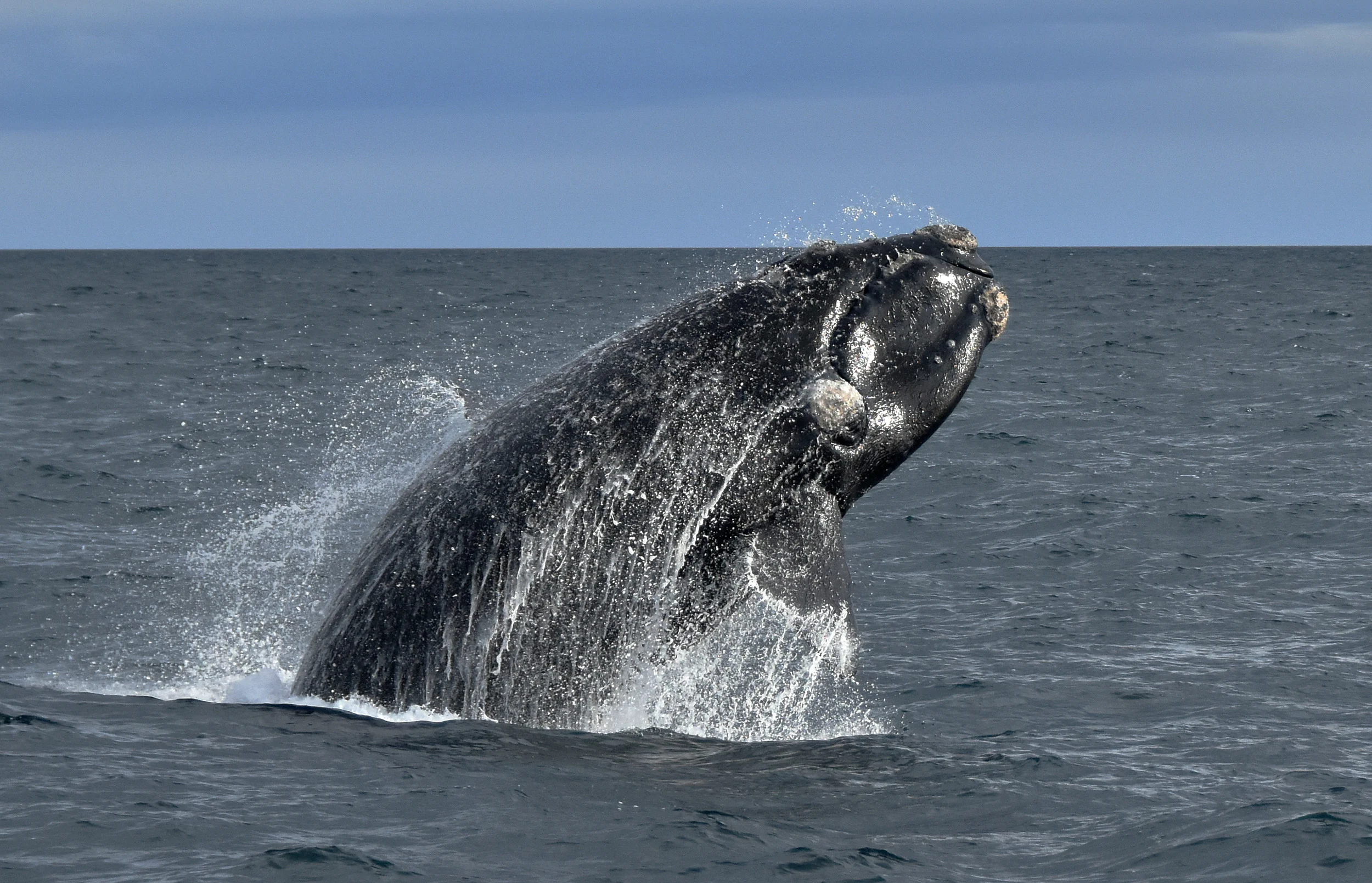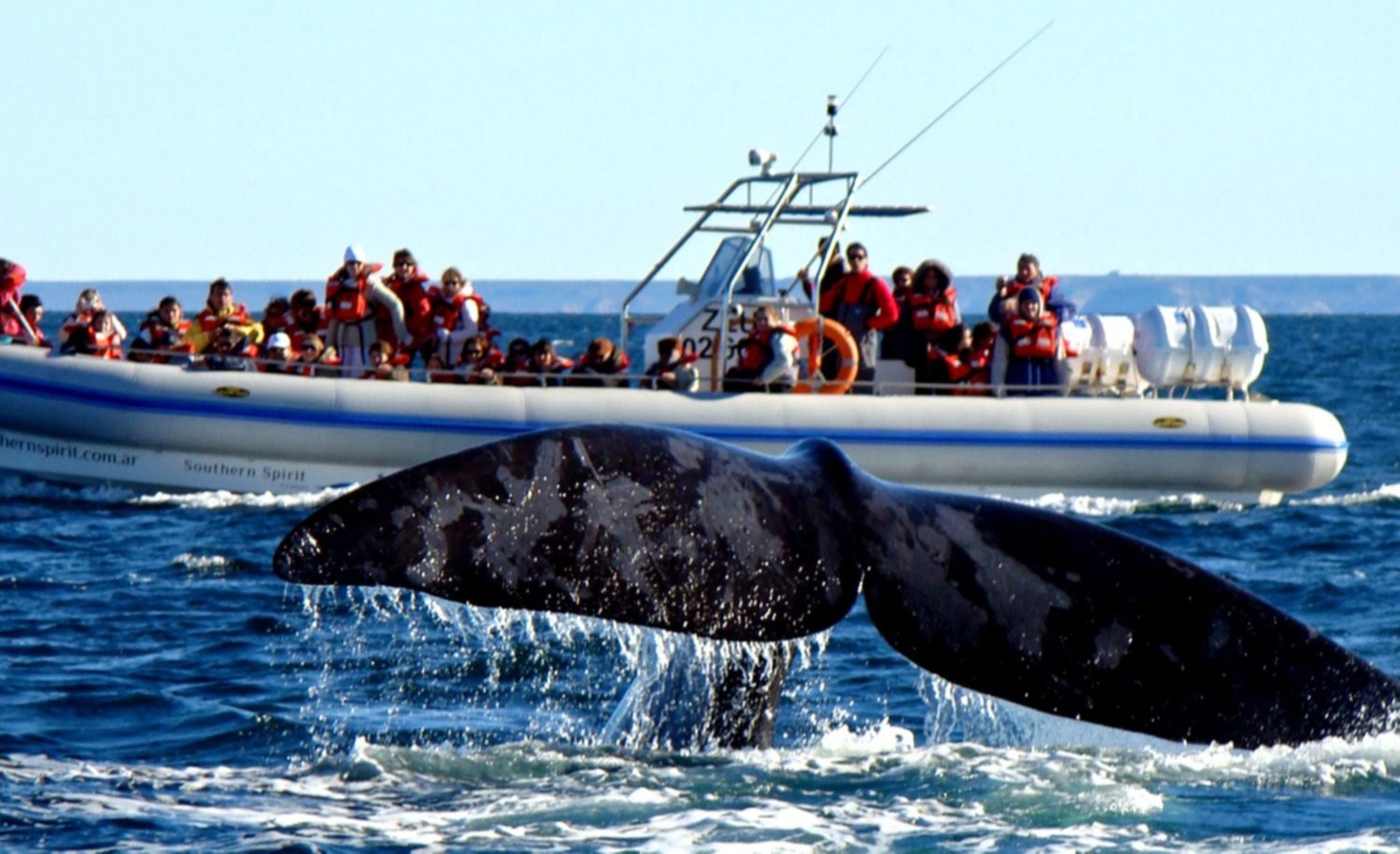Necochea, a coastal city in the province of Buenos Aires, is gradually standing out as a destination for southern right whale watching.
This activity has traditionally been associated with Patagonia. However, the increasing presence of these cetaceans off its coast has sparked great tourist and scientific interest.
This positions the city as a new ecotourism hub in the region.
Whale Watching in Necochea: A Captivating Activity
One of the main advantages that Necochea offers is the possibility of whale watching from the beach, without the need for boats.
This phenomenon, uncommon in the province, allows both residents and visitors to enjoy the natural spectacle in an accessible, safe, and habitat-friendly manner.
 Whale watching on the Buenos Aires coast.
Whale watching on the Buenos Aires coast.
In response to the growing interest in this activity, the local Tourism and Productive Development Secretariat launched the “Whale Watching Corridor,” a project that seeks to structure and enhance nature tourism.
This corridor includes the installation of strategic viewpoints, informative panels, interactive screens, and QR codes on beaches, parks, and waterfront areas.
Responsible Tourism, Conservation, and Local Development
Whale watching in Necochea is promoted as a practice of responsible and sustainable tourism.
Therefore, authorities have begun to take measures to ensure the protection of marine fauna and avoid disturbing the behavior of whales.
In this context, progress is being made in the regulation of nautical transportation to ensure that all activities related to whale watching comply with environmental conservation criteria.
 The activity emerges as a new point of attraction in the city.
The activity emerges as a new point of attraction in the city.
Furthermore, it is worth noting that whale watching has had a significant economic impact on the city, especially during the low season.
Both hospitality, gastronomy, and businesses benefit from an increase in tourist influx. Additionally, it has also encouraged the diversification of local tourism offerings and the creation of new jobs related to ecotourism.
In this regard, a meeting was held this week in the auditorium of the Municipal Palace with a large attendance.
The presentation of the Marine Mammals Guide of the Buenos Aires coast, by Marcela Junín and Daniel Boh, was an opportunity for municipal authorities, teachers, students, NGOs, and environmental activists to begin to envision an action plan.

